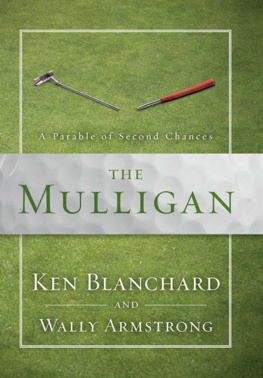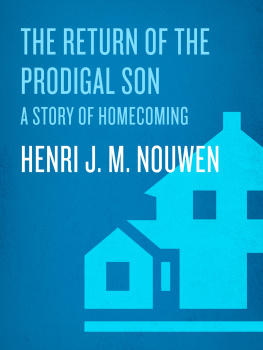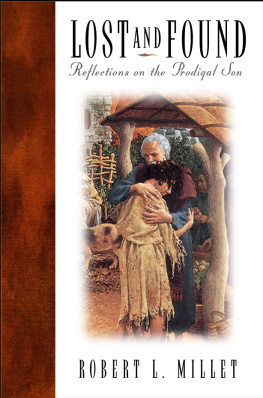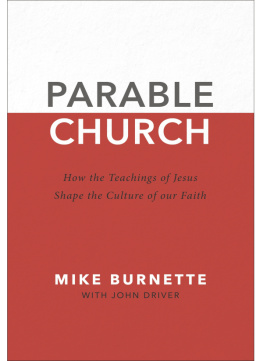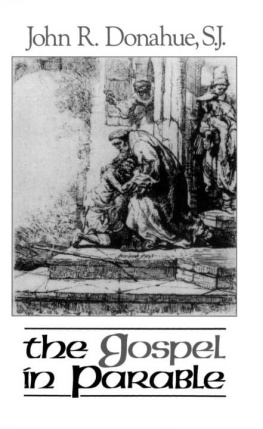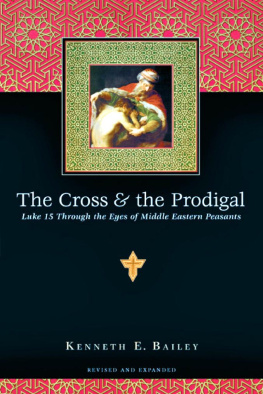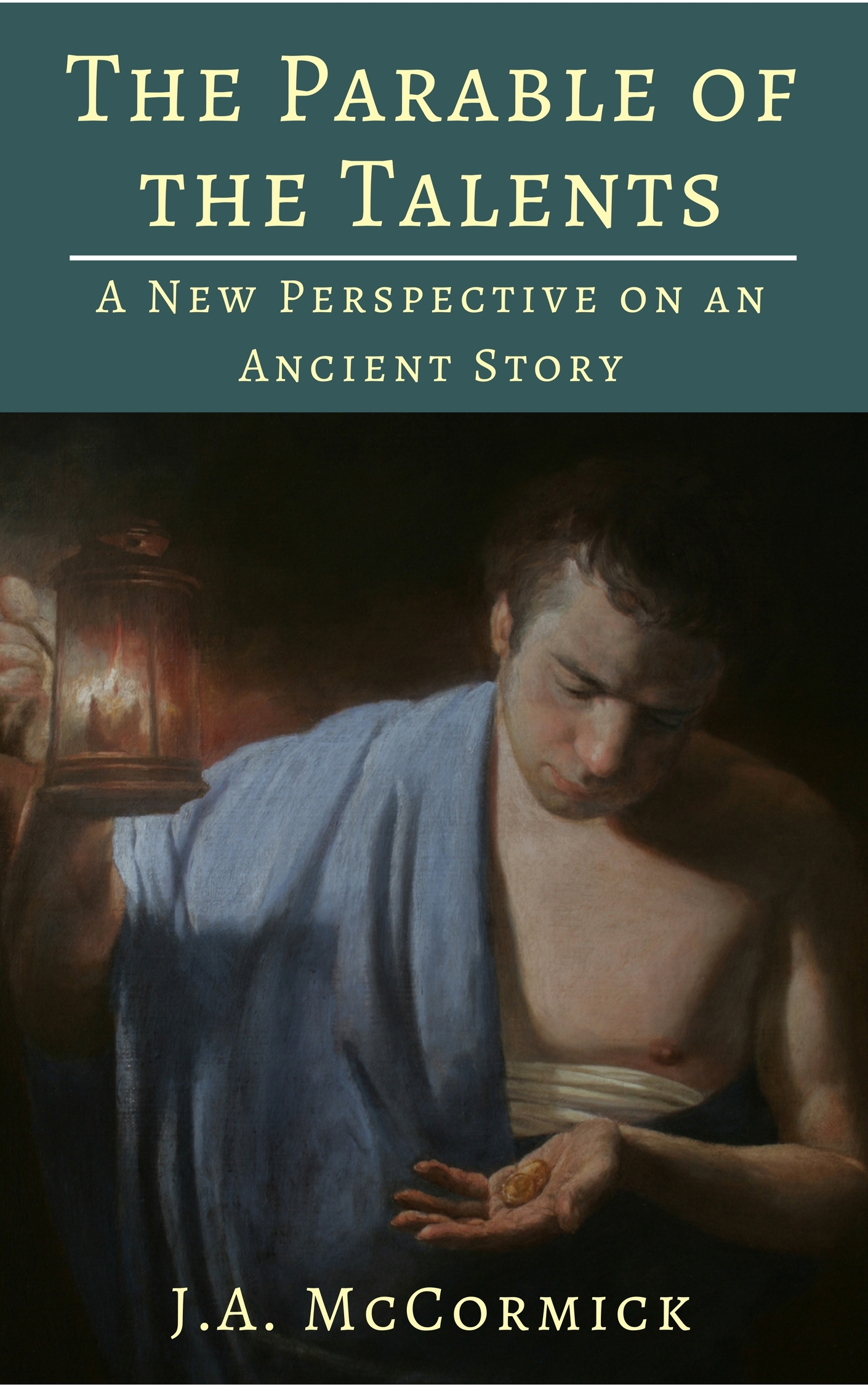This book examines the parable of Jesus commonly referred to as the parable of the talents. While the story is an ancient one, the perspective is new. Its message is intended for a global audience and has implications for each of us regardless of our background, religious persuasion, or lack thereof. Although the themes examined in this small book could occupy volumes, its contents have been deliberately condensed to its present size so as to most effectively and powerfully impact the reader.
A Story
In the New Testament, there is a story that tells of a man who goes on a long trip and before leaving, gives a large sum of money to three of his servants to invest while he is gone. In Matthew's account, the amounts given are five talents, two talents, and one talent. The first two servants invest theirs and are able to double their money, while the last servant hides his away for safe keeping. When the master returns, he rewards the first two servants graciously. After which, the last servant returns his one talent and explains that he was afraid and knew that the master would expect more than he gave. So, he had buried his talent away. The master is angry with this last servant and tells him that he is lazy. He then takes away his one talent and gives it to the fellow with ten and casts the lazy servant into outer darkness".
When I was young, this story perplexed me for a few reasons. First, why was the master so hard on the third servant? I understand that he expected him to earn more money, but it wasnt like he lost the money or wasted it. And doesnt outer darkness sound a bit extreme?! I dont really know what that is, but it doesnt sound pleasant. It seemed to me that it would make more sense to punish the last servant and send him back to investment school for a few more lessons in money management. Of course, who knows? Perhaps the master had exactly that in mind after the servant had spent a little time in the cellar called outer darkness. We dont know. All we know is that the servants failure to produce an increase appears to be a capital offense.
The other thing that puzzled me about this story was the nature of the masters business. I was raised in a working class home with little extra money, so we were not investors on any grand scale. Growing up, I was raised to play it safe and was extolled to avoid gambling as a potential vice that could destroy my future as surely as drugs or alcohol. So for me, the behavior of the first two servants seemed fool hearty. Here they had been given a great sum of money, and the first thing they do is to go out and risk it on some fly by night business venture in which they could have lost their shirts! What if they had lost the masters money in the attempt? What would they have done then?! Wouldnt their fate have been worse than the fate of the last servant? Yet, the master had expected them to put his money at risk in a gamble of some sort. And what is more, he expected something even more unreasonable. He expected them to win! How is it that a person can be expected to win at a game of chance?
Here we begin to see that this story is speaking to us about more than money since this parable rates very poorly as business advice. It would be unrealistic in any economy to suggest that investors can expect to win all of the time. Consider also that there is no middle group. There is no record of a servant that invested and didnt gain an increase. In this story, every servant who opens himself to vulnerability and loss is rewarded with success and every servant who recoils in fear and refuses to trade loses in the biggest way possible.
So we see also that the parable is intended to touch the world in a universal way since these two traits are universal. Every individual born onto this planet is given as a free gift a certain set of truths, or perhaps better said, a different perspective on the One Truth. These perspectives come to us in many ways including our upbringing, our experiences, our education and our religious/spiritual training and beliefs. But, regardless of our different inclinations and persuasions, we are each faced with the same choice as the three men in the parable. What are we going to do with the gift weve been given?
But before we examine that question too closely, lets look at what is required to make such a wager. Though the estimates differ as to how much a talent would be worth by todays standards, even by the more conservative estimates, these men were given no small bankroll. Imagine what it would have been like to sit there in your private room in the masters house with a bag full of gold beside your bed. What would have passed through your mind? Remember that as far as we know, it was all they had. At this point, they are servants, and it is likely that for them, this bag of money represented every hope of future joy and fulfillment. To open themselves to the risk of losing it would have been tantamount to losing their livelihood, their home, their friends and family, and considering the fate of the man who had not created an increase, possibly even their very souls! So to invest the money was an act of faith. For once the money was invested, only Providence could bring it back to them and only Providence could bring an increase.
The other thing that we see is that all three servants were cognizant of the source of their good fortune. It was a gift from the master. When we view this in its broader context, we can see that to spite our varied persuasions, each of us believes our views to be right and cherishes them, honors them and defends them. We may give credit to Jesus, to the Universe or to Allah, but the thing that we have in common is that our views and beliefs are ours and that we value them. Even the person who claims no belief in a higher power reveals through his conviction the acknowledgment of an underlying premise: that such a knowledge of the absence of the divine is possible, in which case, the veracity of his position is something which he holds, dare I say, sacred.
The reason that this is important is that it points to an even greater paradox when considered in light of the situation into which these servants were placed. For anyone who has ever held a gold coin in their hand, it would be difficult to convince them of a counterfeit because of golds density and weight. So it is with each of us. Truth has a certain ring to it and even when some of our views are ill founded, it is usually because of the interwoven veins of truth that we hold to those views so tenaciously. We are convinced of the rightness of our position because at least to some extent, we are right. Of course from a more objective standpoint, our bankroll fades into insignificance when compared with the entirety of Truth itself. But our standpoint is not objective. It is anything but. For us, our little stash is all we have in the way of hard currency, and since we see it as no less than a gift from the divine, it can be difficult even to consider laying it upon the altar of Truth in exchange for an unseen promise of increase.



